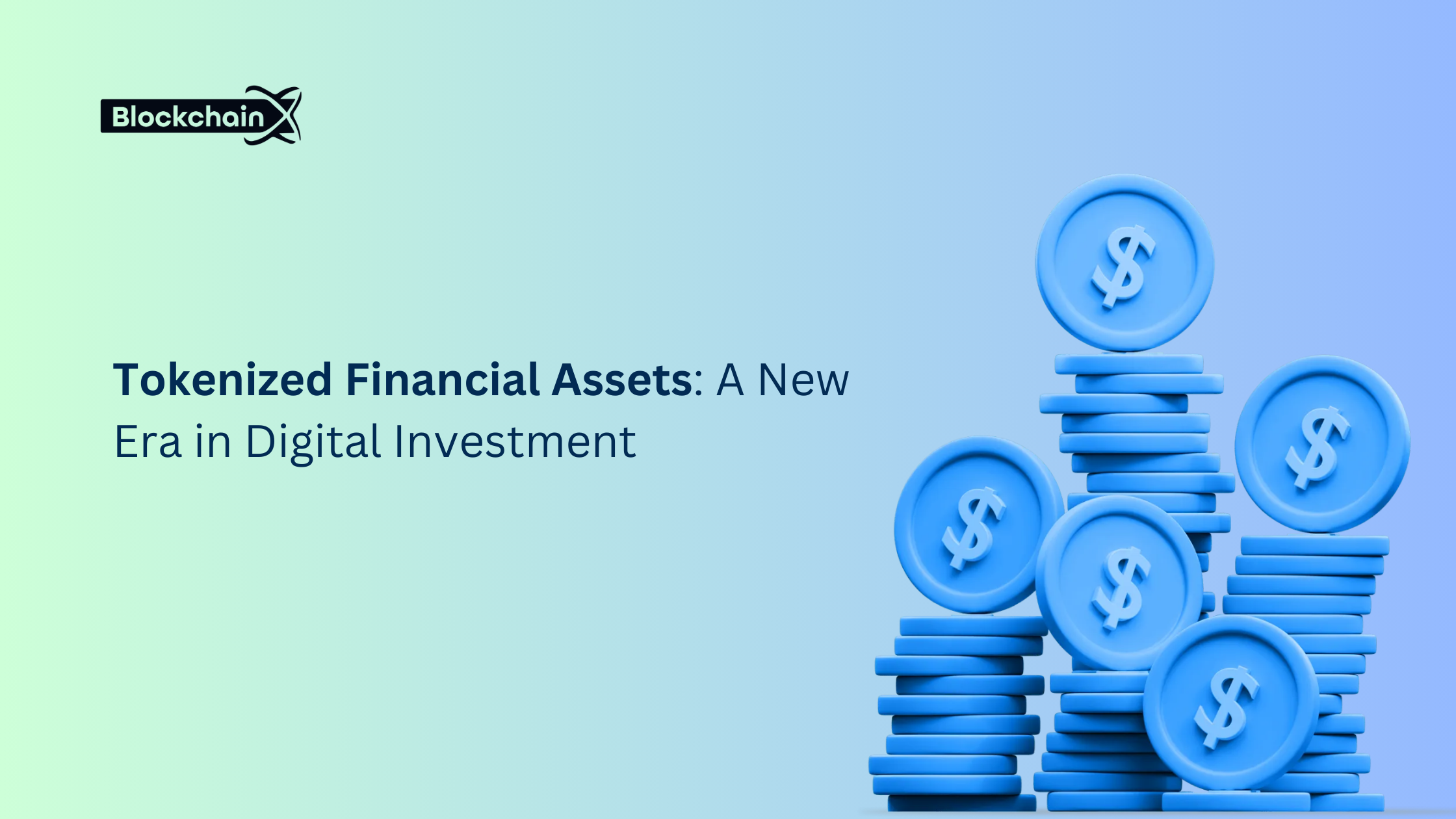Tokenized Financial Assets: A New Era in Digital Investment
 Rose Mason
Rose Mason
Introduction
The financial market is experiencing phenomenal development; tokenization is the very instrument with which this metamorphosis is unfolding. Changing financial tokens redefine the term so that, instead of the traditional view with which they viewed themselves accessing it as investors, they instead look to liquidity, transparency, and efficiency through the technology.
This blog hence lays forth tokenization as financial assets, tokens work advantage, and disadvantages worth considering before heading toward this journey.
Understanding Tokenized Financial Assets
Tokenized financial assets are digital representations of tangible and intangible financial instruments such as stocks, bonds, commodities, and real estate, that exist on the blockchain. Each token stands for a fractional share of ownership or an entitlement to the underlying asset, and this allows for the free trading, settlement, and governance of the asset.
The Process of Tokenization
The first step is to define assets: This is defining the types of assets to be tokenized - equities, fixed income, real estate, etc. .
Legal Compliance: Regulations entail the financial laws that the processes must conform to in order to be legally compliant.
Token Generation - Blends ownership, transfer rights, and distributions to each smart contract in a blockchain.
Marketplace Integration - The tokens are basically online marketplaces for investors to buy, sell or trade them easily.
Benefits of Tokenized Financial Assets
1. Improved Liquidity
The core features of tokenization in the traditional markets, which have been constrained in liquidity, provide for fractional ownership. Thus, trades activity would be simplified for smaller units of the assets even among high-value assets.
2. Savings Determined in Costs
Reduced participation of intermediaries such as brokers and clearing houses in transactions thus greatly mitigating transaction and administrative costs.
3. Better Clarity and Security
Transformational properties entailed every transaction in a public, unalterable ledger, therefore minimizing fraudulent actions and building a positive atmosphere for the investor.
4. Accessibility through Fractional Ownership
Wider access to investment is opened to anyone including retail investors through fractional ownership.
5. Swift Settlement Time
Settlement, which traditionally took days for execution, now occurs almost instantaneously on the blockchain-rendering continuous operational efficiency.
Key Applications of Tokenized Financial Assets
1. Equity Tokenization
Equity shares represent ownership shares of companies that can be tokenized, thus enabling real-time digital trading, reducing costs, and increasing efficiency.
2. Debt Instrument Tokenization
Tokenized bonds and loans allow for seamless trading, real-time interest payments, and greater market access.
3. Tokenized Real Estate
Real estate properties can be fractionalized, so investments become cheaper and more accessible on a global scale.
4. Commodity Tokenization
Tokenization of precious metals, oil, and agricultural products lends itself to instant and inexpensive transactions.
Challenges Surrounding the Adoption of Tokenized Assets
Regulatory Barriers - Compliance can be challenging due to uncertainties regarding regulations and jurisdictional differences.
Cybersecurity Issues - Another important issue with regard to facilitating adoption would be that of ensuring strong safeguards against cyber threats.
Investor Apathy - Traditional investors are highly skeptical because of ignorance of tokenized assets.
Technical Complexities - The entire ecosystem of smart contracts and blockchain networks relies heavily upon sophisticated infrastructure.
The Road Ahead for Tokenized Financial Assets
As blockchain technology improves and regulatory clarity emerges, tokenized financial assets are set to become a mainstream financial instrument. Financial institutions are discussing different regulatory frameworks to incorporate tokenized assets into traditional financing. The next few years are perhaps going to witness heightened acceptance and sophistication of platforms, with added investor participation.
Conclusion
Tokenized financial assets are a paradigm shift from conventional investment practices, ensuring accessibility, liquidity, and efficiency like never before. With an evolving financial environment, businesses and investors need to consider tokenization as the way forward or risk being unable to compete in the digital finance revolution.
The future is puffed under the wings of tokenized assets to exploit new opportunities in the vast panorama of the global investment ecosystem.Get Started with RWA Tokenization Services Today!
Subscribe to my newsletter
Read articles from Rose Mason directly inside your inbox. Subscribe to the newsletter, and don't miss out.
Written by

Rose Mason
Rose Mason
I am a rosemason with a deep expertise in blockchain technology. I am a seasoned consultant who specializes in helping businesses and organizations harness the power of decentralized systems. My experience spans across various blockchain platforms, focusing on developing and implementing innovative solutions such as tokenization, smart contracts, and decentralized applications (dApps). Known for his strategic insight and technical knowledge, and am dedicated to guiding clients through the complexities of blockchain, ensuring seamless integration and unlocking new growth opportunities in this rapidly evolving space.